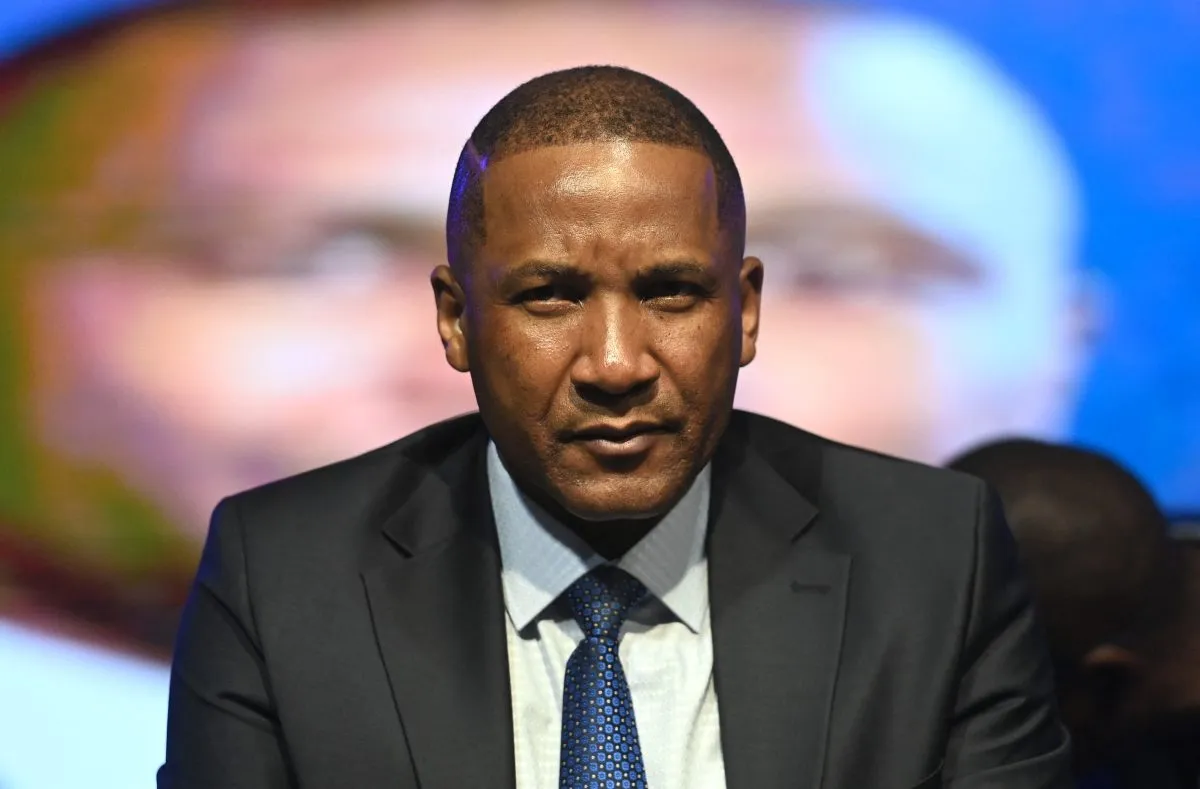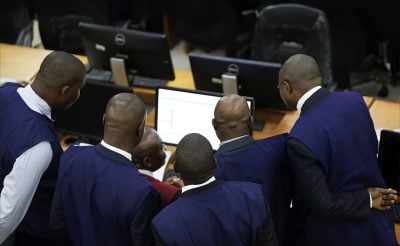Policymakers and experts attending the African Economic Conference in Gaborone, Botswana, in November emphasised the urgent need for African policymakers to take bold steps to restructure their economies and enhance resilience in a challenging global environment. Organised by the African Development Bank (AfDB), the United Nations Development Program and the UN Economic Commission for Africa (UNECA), the conference brought together experts and thinkers from across the continent and beyond to discuss strategies for securing Africa’s economic future amid growing uncertainty.
Accountable leadership
President Duma Boko of Botswana (pictured), who swept to power in the country’s recent elections on the promise of economic recovery and job creation for young citizens, challenged African leaders to acknowledge the difficult realities facing Africa and take accountability for policy missteps that may have exacerbated the situation.
“We must rise above self-adulation and deal with the realities that our actions cause to our people. We will be our own worst enemies if we do not step up and call each other out,” he said.
He urged leaders to intensify their efforts to diversify their economies, highlighting the initiatives his administration has launched to reduce Botswana’s heavy reliance on diamonds and bolster sectors such as infrastructure, agriculture and tourism.
Africa’s abundant natural resources offer a solid foundation for economic diversification and the development of regional value chains, he argued.
“Africa is still rich in natural resources, and it is critical that we develop and strengthen value chain systems for value addition to Africa’s vast natural resources and to prioritise the use of these in Africa. Not only will this diversify the African economies enormously, but it will also create more jobs in our countries.”
Boko also decried the escalating conflicts in the region, noting that this was chipping away at hard-won gains in poverty reduction and development. According to the Geneva Academy of International Humanitarian Law and Human Rights, there are currently more than 45 armed conflicts taking place across the continent.
“The ongoing and unnecessary wars must stop, as they continue to cause immeasurable human suffering, loss of life, displacement, and leave lasting scars on societies,” Boko stated.
He emphasised that Africa’s greatest asset is its youthful population. However, high unemployment, low skill levels, and policies that fail to prioritise inclusivity mean that this potential remains largely untapped.
“Africa is blessed with a young and vibrant population which is a tremendous asset, if invested wisely. Our young people are the innovators, entrepreneurs, and leaders of tomorrow, who will drive our economic growth and create inclusive, resilient societies, where no one will be left behind.”
Outsourcing development not an option
Kevin Urama, the AfDB’s chief economist and vice president economic governance and knowledge management, noted that a mindset shift was needed in Africa. Too often, leaders and policymakers turn to global institutions for assistance while the solutions to Africa’s problems can be found within the continent.
“Countries need to realise now more than ever that national development must not be outsourced. Development is a do-it-yourself business,” he said, adding that “Africa needs home-grown solutions embedded in local realities.”
One of the major priorities he highlighted is the need for pro-industrial policies to diversify African economies and drive inclusive growth. However, he cautioned that these policies must not be rigid and must allow room for innovation. Without this flexibility, they will not be sufficient to create the millions of jobs needed for Africa’s burgeoning youth population.
“I must note here that industrial policy on its own is not a magic solution to slow growth, employment creation, and poverty reduction. Rather a pro-innovation policy mix that prioritises strategic value chain development in key competitive sectors can help to boost inclusive economic growth and sustainable development in countries,” he argued.
He also decried poor governance that leads to revenue leakages and wastage, pointing out that Africa on average loses around $1.6bn a day as a result of corruption, rent-seeking activities, and illicit financial flows.
Ahunna Eziakonwa, regional director for Africa at UNDP, noted that escalating global conflicts are crowding out development spending amid a ramp up in military spending. This shift is particularly detrimental to Africa, which faces significant development financing needs.
“Wars in Ukraine and Palestine have pushed annual global military spending above $2.4 trillion, the highest level since 2009. This is diverting resources from investment in the Sustainable Development Goals,” she said.
Eziakonwa decried the high cost of borrowing for African countries, arguing that this was largely the result of “inaccurate” credit ratings by global credit ratings agencies that misunderstand the continent’s risk profile. Credit rating inaccuracies cost African countries $75bn in excessive interest and foregone lending, according to UNDP.
“As part of our approach to supporting African countries in improving their credit ratings, we have launched a publicly accessible Africa Credit Ratings Resource Platform to serve as a one-stop shop for data, methodological information, and research on credit ratings.”
“We also provide bespoke technical assistance and capacity building to African countries preparing for credit ratings or rating reviews.”
Domestic resource mobilisation key
Claver Gatete, executive secretary of UNECA, emphasized that in a world where development finance is becoming scarcer and debt increasingly expensive, Africa must strengthen its tax systems and prioritise domestic resource mobilisation to boost its economic fortunes.
“Africa’s tax-to-GDP ratio, at 15.6%, is far below the global average. Increasing this by even a few percentage points could generate billions in revenue,” he remarked.
He argued that boosting revenues doesn’t necessarily require increasing taxes. Digitizing tax administration and enhancing compliance can help net billions of dollars in additional tax revenues. Rethinking tax expenditures, such as incentives offered to attract private investors, can also shore up national coffers. Only private investors who can demonstrate that their operations result in employment, incomes, and growth should access these incentives, he emphasised.
“We must modernise our tax systems, broaden our tax bases to include the informal sector, harness digital technologies to ensure efficiency and seal the loopholes for illicit financial flows. We also need to ensure that fiscal incentives for private investors are well targeted,” he said.
Gatete noted that Africa’s future lies in its ability to transform resources into value-added products. “It is therefore critical that we build regional value chains across key sectors. With 94 value chains identified in 23 sectors across an estimated 240 special economic zones, there is no reason why Africa cannot be successful in this endeavour.”
“We already have successful models right here on the continent for other African countries to replicate such as Botswana’s beef industry, Ethiopia’s leather production and Ghana and Côte d’Ivoire cocoa sectors,” he pointed out.
He also called on African leaders to intensify efforts to attract private investors by de-risking the investment climate, stressing that this was the only way to cut dependency on foreign aid. Through strengthened governance, transparent systems and innovative insurance mechanisms, Africa can mitigate investor risks, he said.
“For example, South Africa’s pharmaceutical industry and Rwanda’s vaccine manufacturing facility demonstrate the power of local value creation in attracting global partnerships. We must endeavour to replicate such successes across sectors and regions on the continent.”
He emphasised that leaders must expend every effort to make the African Continental Free Trade Area (AfCFTA) a success. This will help build the scale that is necessary to not only attract private investments, but also build the regional value chains that Africa needs to spur industrial growth and create high income jobs.
Climate finance should be concessional
Acknowledging the devastating impact of climate change on the continent’s most vulnerable populations, Eziakonwa criticised the sluggish pace of financing to address the issue. She also highlighted that the cost of climate financing remains unsustainable.
“Our continent continues to bear a disproportionate cost of climate change – a problem we did not cause. African countries have the daunting task of raising some $250bn annually (10% of GDP) for climate action, and less than 10% has been raised.”
“Furthermore, over three-quarters of the sums available are loans, not grants. This is further indebting a continent that will pay over $160bn in debt service this year alone.”
Urama concurred on the need for increased concessional financing and grants to support climate finance efforts.
“For me climate finance should not be a loan, because climate finance is supposed to address vulnerability in an economy and most often the most vulnerable economies are not the source of climate change.”
“To mobilise more climate finance, countries must be intentional about building capacity to prepare climate projects and navigate the complex climate finance architecture. So capacity building is crucial to addressing the challenge of securing more climate finance for Africa.”
However, Gatete noted that while concessional funding and grants are more appropriate forms of climate finance, Africa has no control over the amounts and timings of the money pledged by richer countries. The solution, he said, lies in Africa valuing its natural capital more appropriately to raise more funds for mitigation and adaptation. He cited the example of carbon credits in Africa, which remain grossly undervalued compared to other regions of the world.
“Other countries have been selling carbon credits at more than $100 per tonne, but on the African continent it’s below $10 per tonne,” he said, noting that efforts were underway to rectify this by including Africa’s green wealth in GDP computations.
Want to continue reading? Subscribe today.
You've read all your free articles for this month! Subscribe now to enjoy full access to our content.
Digital Monthly
£8.00 / month
Receive full unlimited access to our articles, opinions, podcasts and more.
Digital Yearly
£70.00 / year
Our best value offer - save £26 and gain access to all of our digital content for an entire year!

 Sign in with Google
Sign in with Google 



